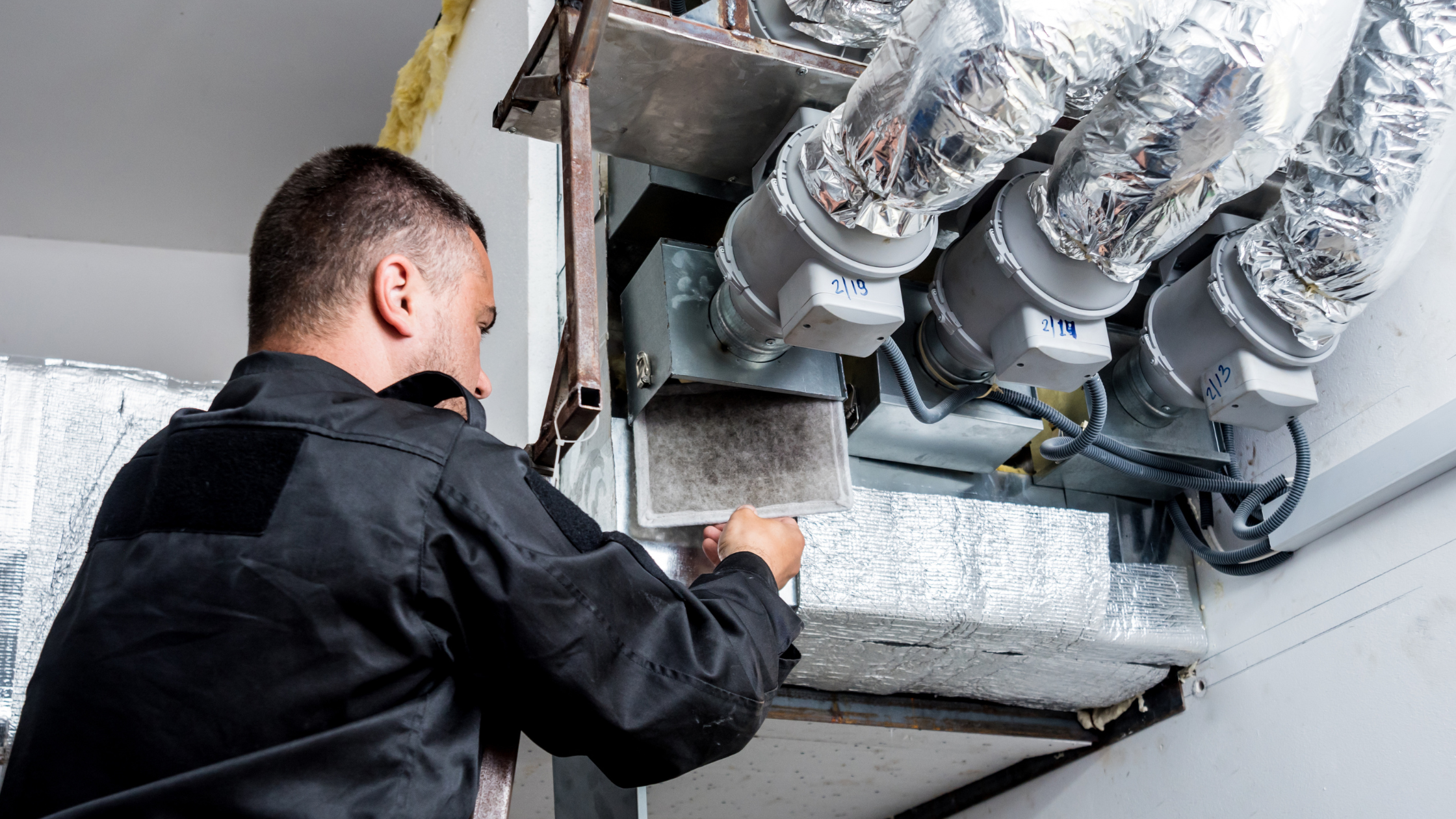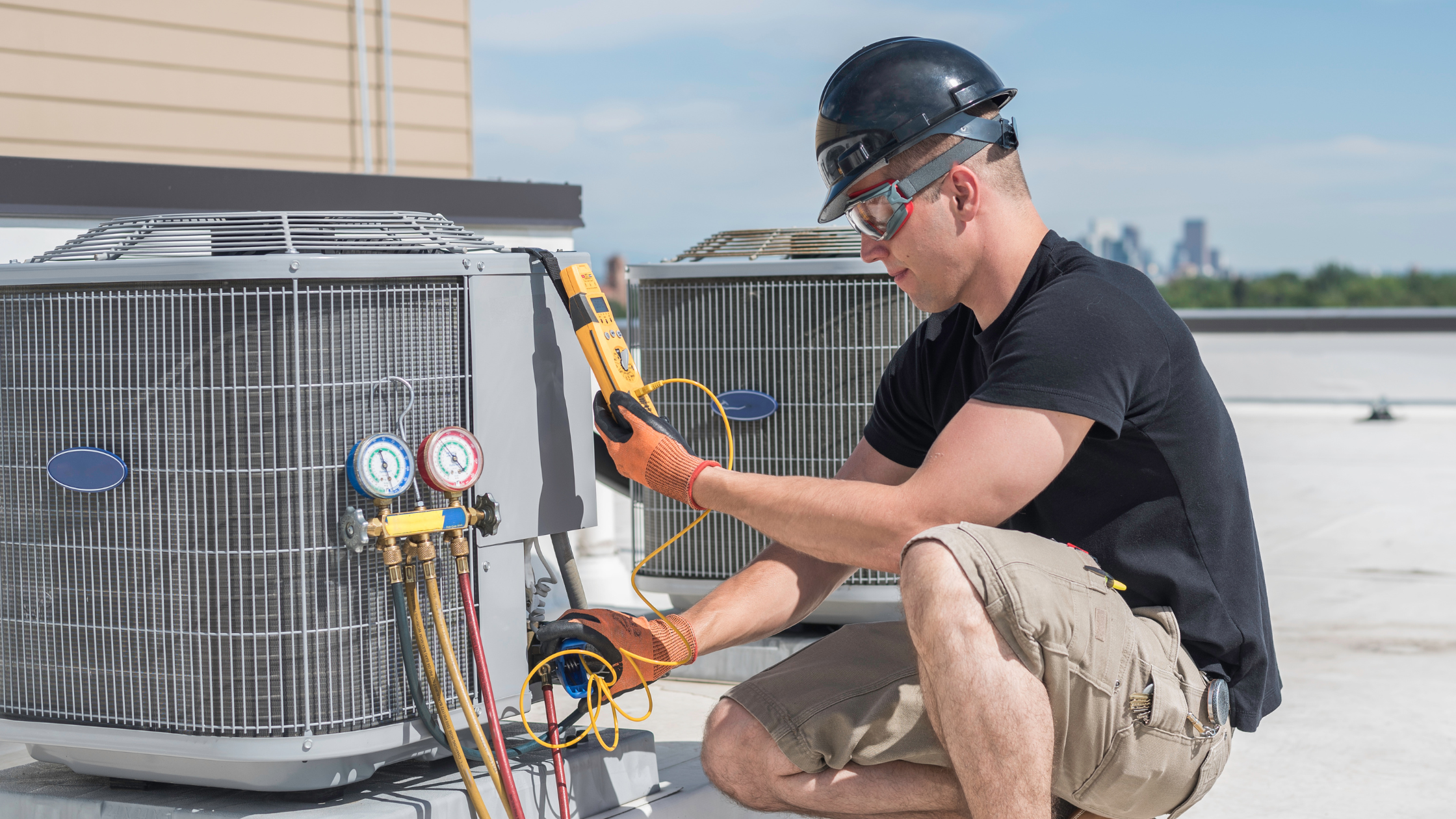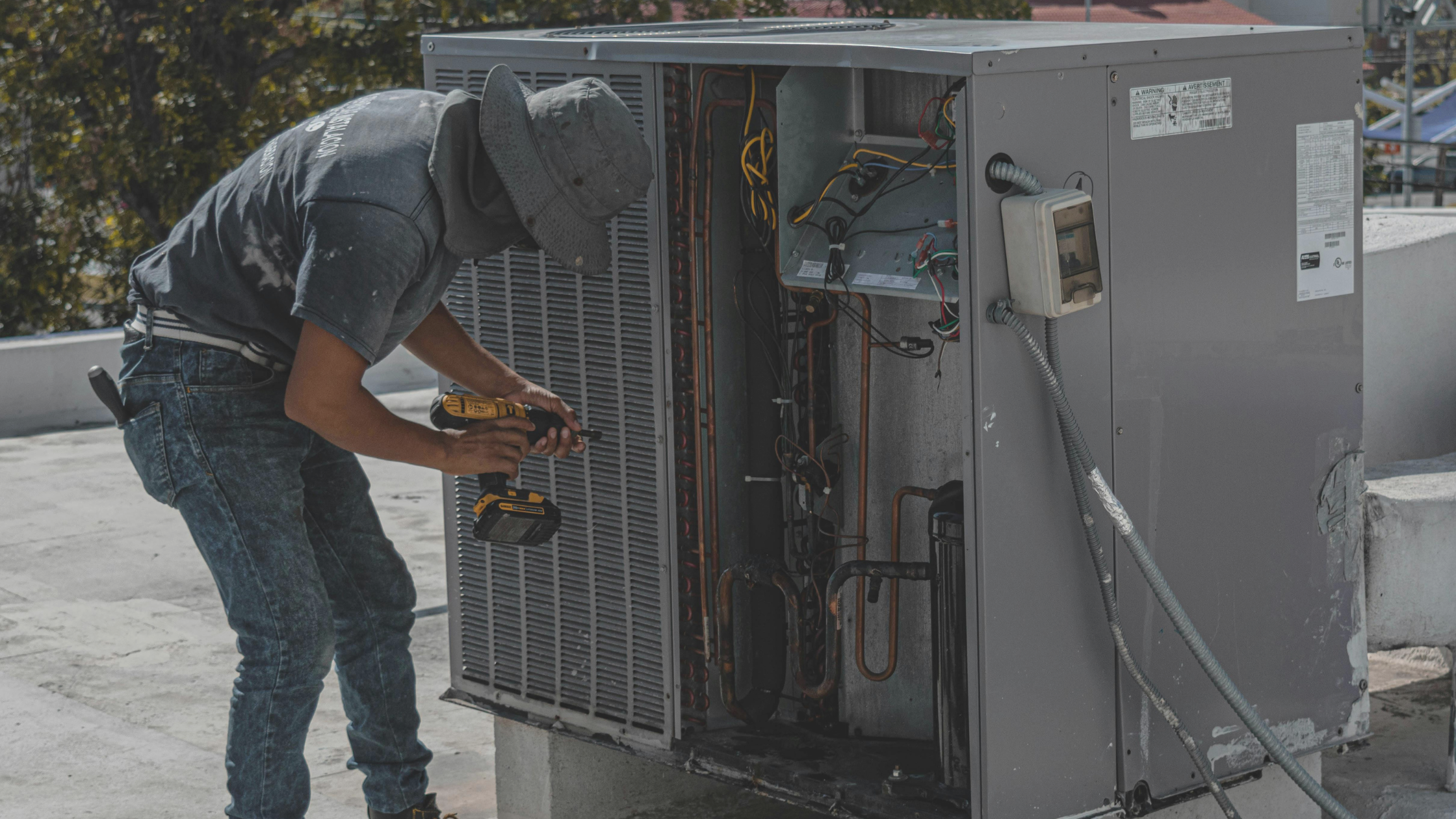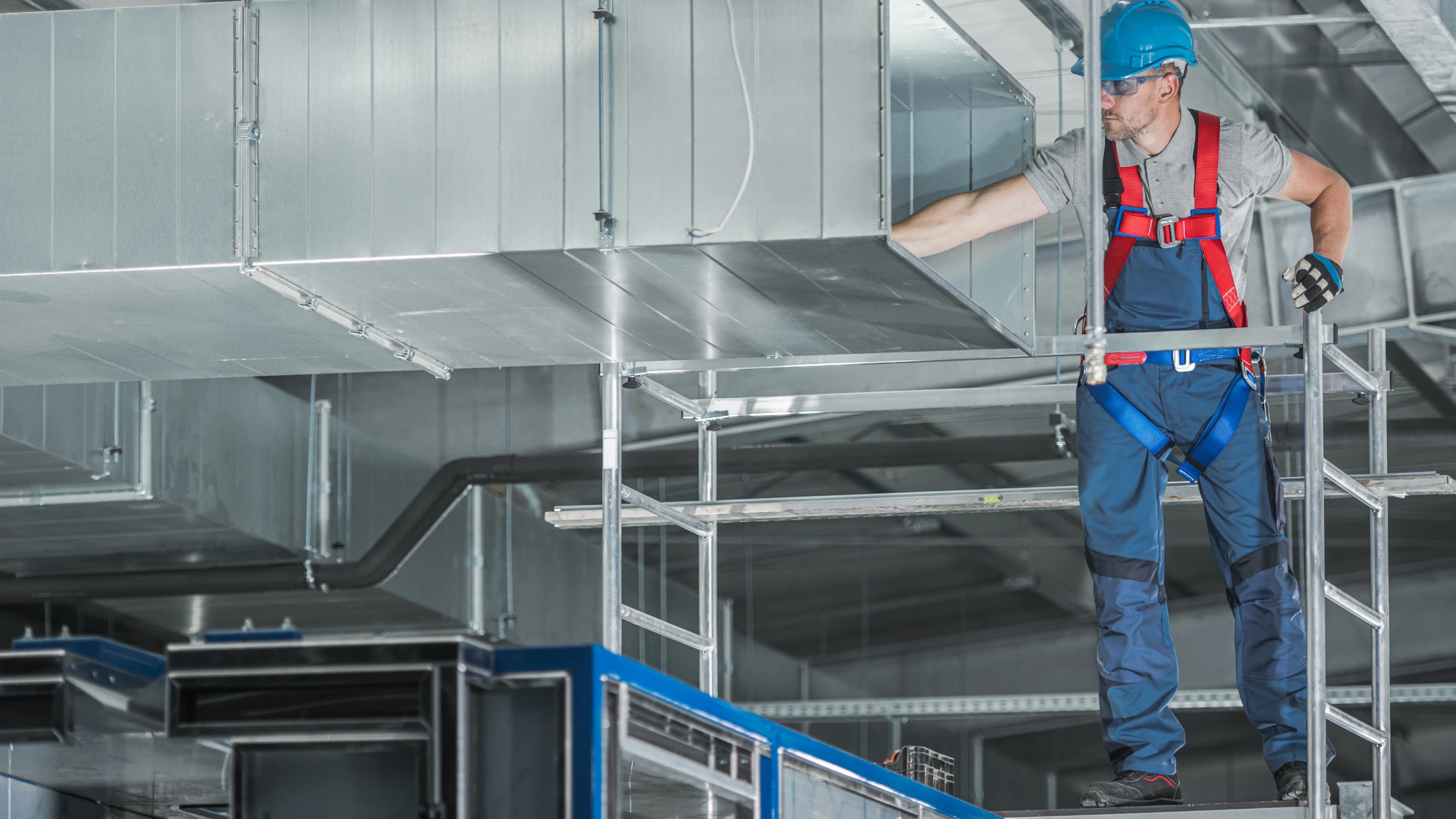A Complete Guide for Melbourne Homeowners and Businesses
In Melbourne, where the weather can fluctuate dramatically from one season to the next, having a reliable heating, ventilation, and air conditioning (HVAC) system is essential. Whether you are installing a new system, replacing old ductwork, or repairing a faulty unit, the success of your project largely depends on choosing the best HVAC repair service.
With so many options available, how do you know which HVAC contractor in Melbourne to trust?
In this blog, we will help you make an informed decision while targeting essential services such as HVAC installation, HVAC ducting replacement, and kitchen exhaust hood installation.
Why Choosing the Right HVAC Contractor in Melbourne Matters
Your HVAC system is a long-term investment in your property’s comfort, energy efficiency, and indoor air quality. A poor installation or repair can lead to:
- Higher energy bills
- Inconsistent heating or cooling
- Frequent breakdowns
- Reduced lifespan of your HVAC unit
- Poor indoor air quality and increased allergens
That’s why it’s crucial to work with a trusted, experienced, and licensed HVAC contractor in Melbourne.
Key Services You Should Expect from a Professional HVAC Company
When looking for the right service provider, ensure they offer a full range of solutions, including:
HVAC Installation
Professional HVAC installation ensures your system is correctly sized, positioned, and set up for Melbourne’s unique climate. An experienced HVAC installer in Melbourne will evaluate your property layout, energy needs, and budget to recommend the best solution.
HVAC Ducting Replacement
Old or damaged ductwork can cause air leaks, reduced efficiency, and uneven temperatures. Quality HVAC ducting replacement can drastically improve airflow and lower your energy consumption. Melbourne homeowners should replace ducting every 15–20 years or sooner if damage is evident.
HVAC Repairs and Maintenance
Prompt and accurate HVAC repair services reduce downtime and extend the life of your system. Choose a team with the tools, training, and certifications to handle a wide variety of brands and models.
Kitchen Exhaust Hood Installation
A reliable HVAC contractor should also offer kitchen exhaust hood installation, particularly for commercial kitchens or residential renovations. Proper exhaust systems help remove smoke, odours, and grease, keeping your kitchen safe and compliant with Melbourne building codes.
How to Choose the Best HVAC Repair Service in Melbourne
Here are the top factors to consider when selecting the right HVAC contractor for your repair or installation project:
1. Check Licensing and Insurance
Your HVAC contractor must be fully licensed and insured to operate in Melbourne. This ensures they meet safety standards and are authorised to work on residential or commercial HVAC systems.
Ask for:
- Victorian Building Authority (VBA) registration
- Public liability insurance
- Compliance certificates for all completed work
2. Evaluate Their Experience and Specialisation
Not all HVAC contractors are created equal. Choose a company that specialises in the services you need—whether it’s HVAC ducting replacement, HVAC installation, or kitchen exhaust hood installation.
Ask how long they’ve been in business and whether they have experience with your specific system or setup.
3. Look for Transparent Pricing
A reputable HVAC contractor in Melbourne and an HVAC contractor in Brisbane will provide a detailed quote upfront with no hidden charges. This includes:
- Labour costs
- Material and equipment fees
- Warranty information
- Service call or consultation charges
Avoid vague estimates or companies that pressure you into costly upgrades.
4. Ask About Emergency Repair Services
HVAC issues don’t always happen during business hours. Make sure the contractor offers emergency HVAC repair services in Melbourne. Fast response times can make all the difference when your system breaks down in the middle of summer or on a freezing winter night.
5. Check Their Product Partnerships
A good HVAC installer in Melbourne often partners with leading brands like Daikin, Mitsubishi, ActronAir, or Fujitsu. This shows they’re trained to handle reputable systems and may be able to offer better warranties or product-specific insights.
6. Ensure They Offer Maintenance Plans
Preventive maintenance is key to keeping your HVAC system running efficiently. A good contractor should offer ongoing service plans that include:
- Seasonal inspections
- Filter replacements
- Duct inspections
- System diagnostics
Regular maintenance reduces the need for emergency repairs and extends your unit’s lifespan.
7. Inspect Their Work Portfolio
Ask to see recent projects or photos of past installations. This gives you insight into their attention to detail, system placement, and finish quality, especially if you’re investing in kitchen exhaust hood installation or a complex HVAC ducting replacement in a commercial space.
Benefits of Choosing a Local Melbourne HVAC Contractor
Opting for a locally based company means:
- They understand Melbourne’s climate conditions
- They’re familiar with local building regulations
- They’re more accessible for post-installation support
- They can recommend systems that work best in your suburb—be it colder areas like the Dandenong Ranges or coastal suburbs like St Kilda
Why Trust Us for Your HVAC Needs?
As a trusted HVAC contractor in Melbourne, we bring over a decade of experience in heating and cooling system installations, ducting replacements, and exhaust hood setups. Our team is fully licensed, insured, and committed to delivering reliable, energy-efficient results.
We offer:
- Free consultations and site assessments
- Transparent pricing with no hidden costs
- Premium products backed by manufacturer warranties
- 24/7 emergency repair services
- Custom solutions for both residential and commercial properties
Final Thoughts
Choosing an exemplary HVAC repair service can make a world of difference in your comfort, energy bills, and air quality. Whether you’re upgrading your ducting, installing a new system, or fitting a kitchen exhaust hood, make sure you’re working with a qualified HVAC installer in Melbourne who is trusted, licensed, and experienced.
When you take the time to evaluate contractors carefully, you ensure peace of mind and long-term satisfaction with your HVAC system.




